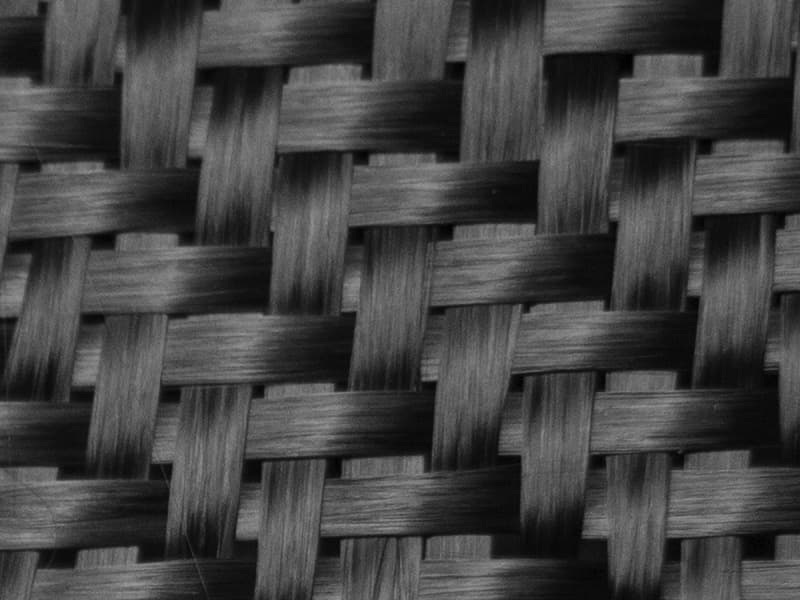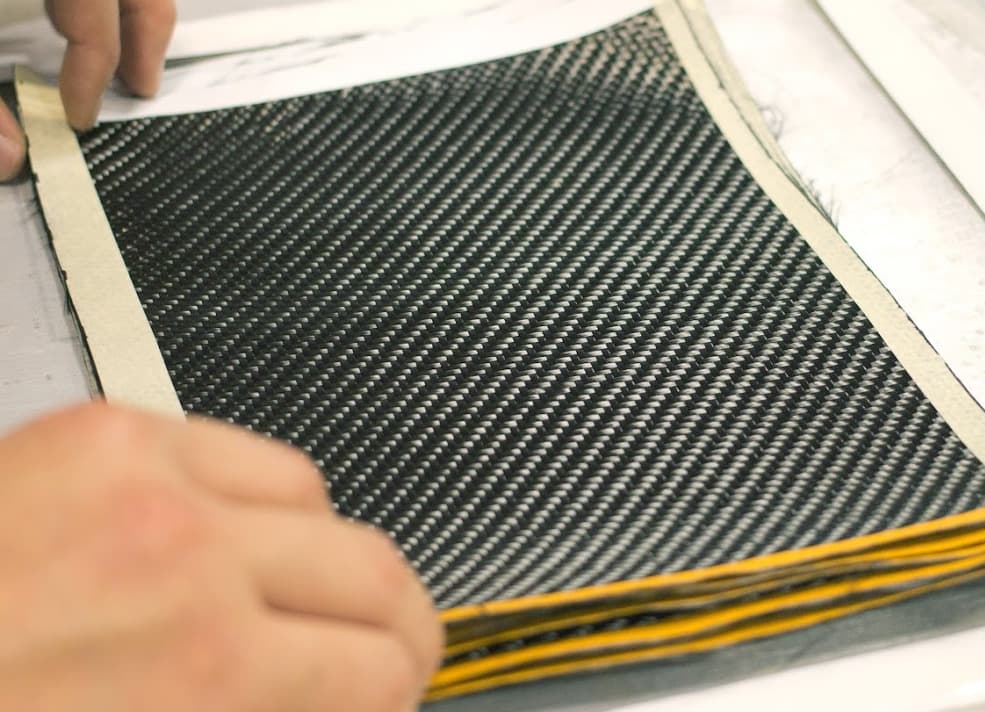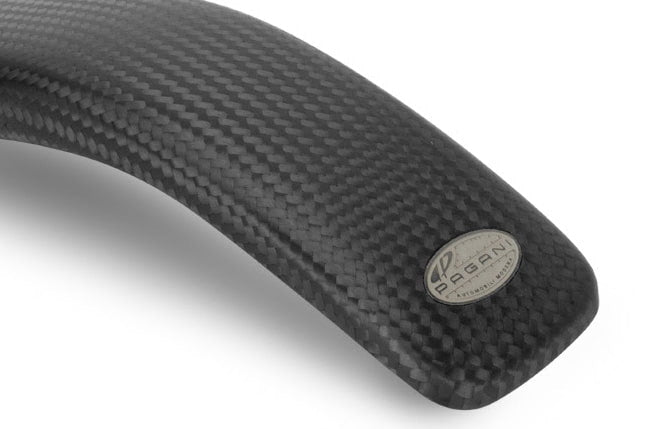Hey, you!
I know you came for our awesome blog post, but we have to let you in on something. Our main business is a shop that sells a ton of unique and cool lifestyle and personal accessories made with REAL carbon fiber.
If you love carbon fiber as much as we do, go explore!
Looking to give your car an impressive makeover without the hefty price tag? Carbon fiber car wraps are the game-changing solution you need. These cutting-edge vinyl wraps perfectly replicate the sleek, high-performance look of real carbon fiber, offering a stylish transformation that’s both affordable and reversible. But there’s more to carbon fiber wraps than just eye-catching aesthetics.
Read on to explore how these wraps can elevate your vehicle’s style, safeguard its original paint, and offer a cost-effective alternative to traditional customization methods.
What is a Carbon Fiber Car Wrap?
Carbon fiber wraps are crafted from a special type of vinyl that's been meticulously designed to mimic the distinctive weave pattern and texture of real carbon fiber. While it doesn't offer the same structural benefits as actual carbon fiber components, it provides a stunning visual upgrade that's sure to turn heads.
Definition and Composition
Carbon fiber wraps are crafted from multiple layers of vinyl material. At the core, these wraps feature a textured pattern designed to replicate the woven structure of authentic carbon fiber. The film is typically made from a blend of polyvinyl chloride (PVC) and other synthetic polymers, engineered to provide a lightweight yet robust protective layer.
Unlike traditional paint, which involves chemical reactions and curing processes, carbon fiber wraps are applied as a pre-formed sheet, making them easier to install and remove.
Appearance and Aesthetics
Carbon fiber wraps come in a variety of finishes, from high-gloss to matte, each offering a unique look and feel. The intricate weave patterns create a sense of depth and texture, while the overall effect is one of modern sophistication and high-performance style.
True to form, carbon fiber wraps are highly customizable and are cheetah-like in how well their patterns blend in with your car’s overall aesthetic.
Benefits of Carbon Fiber Car Wraps
Carbon fiber car wraps offer a compelling blend of style, protection, and affordability, making them a popular choice for car enthusiasts seeking to transform their rides. Let's explore the key advantages that make these wraps a smart investment:
-
Head-Turning Aesthetics
Carbon fiber wraps instantly elevate your car's appearance, giving it a sporty, high-performance look that's sure to turn heads.
-
Paint Protection
Beyond looks, carbon fiber wraps are designed to protect your vehicle's original paint from scratches, UV rays, and environmental damage. This added layer of protection helps maintain the car's value and keeps it looking pristine.
-
Cost-Effective Customization
Compared to traditional painting, carbon fiber wraps are a more budget-friendly option. They provide a high-impact visual transformation at a fraction of the cost and are often easier to apply and remove.
-
Endless Customization
Choose from a variety of colors, finishes, and textures to personalize your car's look and express your unique style.
-
Reversibility
If you change your mind or want to sell your car, the wrap can be removed without damaging the original paint.
Carbon fiber wraps not only offer an impressive aesthetic upgrade but also deliver practical benefits that make them a versatile choice. An ATV or Jeep Wrangler wrapped in carbon fiber ups your ride’s appeal to no end. It’s simultaneously rugged and sleek.
Carbon Fiber Car Wrap vs. Other Wraps
When it comes to transforming your vehicle’s appearance, carbon fiber wraps stand out from the competition. Let’s dive into how they compare to traditional paint jobs and other types of wraps, emphasizing their distinct advantages in cost, customization, and aesthetic appeal.
Carbon Fiber vs. Paint
-
Cost: Carbon fiber wraps generally offer a more budget-friendly option compared to traditional paint jobs. While custom paint jobs can be costly and require significant time and effort, carbon fiber wraps deliver a similar high-impact look at a fraction of the price.
-
Customization Options: With paint, customization can be limited by color choices and techniques. Carbon fiber wraps, however, provide a range of textures and finishes, allowing you to achieve a high-tech, performance-inspired look that paint alone might not offer. Additionally, wraps can be easily changed or updated, whereas paint is a more permanent alteration.
-
Easy Change: A carbon fiber wrap can be removed without damaging the original paint, giving you the freedom to switch things up whenever the mood strikes. With paint, you're stuck unless you're ready for another expensive respray.
Carbon Fiber vs. Other Wraps
-
Aesthetic Appeal: Carbon fiber wraps are renowned for their unique, high-tech appearance. They mimic the distinctive woven texture of real carbon fiber, providing a sophisticated, performance-inspired look that stands out from other vinyl wrap options. While other wraps, such as matte or gloss finishes, offer their own visual styles, they lack the distinctive texture and depth that carbon fiber provides.
-
Performance-Inspired Design: Carbon fiber wraps not only look impressive but also evoke a sense of high-performance engineering. This makes them a popular choice for automotive enthusiasts who want their vehicle to reflect a cutting-edge, racing-inspired aesthetic. Other wraps may offer various finishes, but none capture the same level of technical sophistication and allure as carbon fiber.
In summary, carbon fiber wraps outshine traditional paint jobs and other wrap options by offering cost-effective customization, ease of change, and a uniquely high-tech appearance. It has a clear advantage in both style and functionality.
How to Install Carbon Fiber Wraps
It takes a few tools, time, and skills to install a carbon fiber wrap. Here's a breakdown of the steps involved, along with some helpful tips to achieve a professional-looking finish.
Preparation
Before you even unroll the carbon fiber wrap, proper preparation is essential. This ensures optimal adhesion and a flawless, long-lasting result:
-
Clean the Vehicle: Thoroughly wash and dry your vehicle to remove any dirt, grease, or debris that could affect the adhesion of the wrap.
-
Create a Dust-Free Environment: Choose a clean, dust-free workspace to avoid particles getting trapped under the wrap.
-
Park in a Shade: Work in a shaded area to prevent the wrap from becoming too sticky or challenging to manipulate due to heat.
Tools and Materials: Gearing Up for the Job
Having the right tools and materials on hand will make the installation process smoother and more efficient. Here are the essentials:
-
Carbon Fiber Wrap: Choose a high-quality wrap from a reputable brand. The size and quantity will depend on the areas of your vehicle you plan to wrap.
-
Squeegee and Application Tools: A felt-tipped squeegee is ideal for applying the wrap smoothly and removing any air bubbles. Other helpful tools include a heat gun, cutting knife, and microfiber towels.
-
Cleaning Supplies: Isopropyl alcohol, a cleaning solution specifically designed for vehicle wraps, and lint-free cloths are crucial for prepping the surface and removing any contaminants.
-
Primer (Optional): A primer may be necessary for certain surfaces to promote adhesion and prevent lifting. Consult the wrap manufacturer's instructions for specific recommendations.
Step-by-Step Guide
Now for the main event! Here's a general overview of the installation process:
-
Measure and Cut: Carefully measure the areas to be wrapped and cut the carbon fiber vinyl accordingly, leaving a slight overlap for trimming later.
-
Peel and Apply: Carefully peel the backing off the vinyl and apply it to the prepared surface, starting from one edge and working your way across. Use the squeegee to smooth out any air bubbles or wrinkles.
-
Heat and Conform: Use a heat gun to gently heat the vinyl, making it more pliable and allowing it to conform to curves and contours. Be careful not to overheat the vinyl, as this can cause damage.
-
Trim and Tuck: Once the vinyl is applied and conformed, carefully trim away any excess material using a sharp knife. Tuck the edges of the vinyl into any gaps or seams for a seamless finish.
-
Post-Heating: Apply heat again to the entire wrapped area to ensure the adhesive is fully activated and the vinyl is securely bonded to the surface.
Professional vs. DIY Installation
While some experienced DIYers might be tempted to tackle a carbon fiber wrap installation themselves, it's important to understand that this is a complex and meticulous process. A professional installer has the expertise, tools, and experience to ensure a flawless, bubble-free finish that will last for years. They can also advise on the best type of wrap for your vehicle and specific needs.
But while professional installation may come at a higher cost, it's often a worthwhile investment to ensure a flawless result. However, if you're confident in your DIY skills and willing to invest the time and effort, a self-installation can be a rewarding experience.
Costs of Carbon Fiber Car Wraps
Like any premium upgrade, carbon fiber car wraps come with an investment. But the cost can vary significantly depending on a few factors:
-
Size of the Vehicle: Larger vehicles, such as SUVs and trucks, will typically cost more to wrap than smaller cars due to the increased amount of material required and the larger surface area to cover.
-
Complexity of Installation: Vehicles with complex curves, intricate designs, or numerous parts can be more challenging to wrap, potentially increasing the installation cost.
-
Quality of Materials: The price can also be influenced by the quality of the carbon fiber vinyl used. Higher-grade wraps with better durability and appearance may come at a higher cost.
Expect to pay anywhere from $2,500 to $6,000 for a full carbon fiber wrap on an average-sized car. Luxury or exotic vehicles, or those with complex designs, can push the price even higher.
But if you're looking for a more budget-friendly option, consider a partial wrap. Wrapping just the hood, roof, or side mirrors can give your car a striking carbon fiber accent without the full-body commitment.
Prices for partial wraps typically start around $500 and can go up depending on the size and complexity of the area being wrapped
Maintenance and Care
Your carbon fiber car wrap is an investment in style, so you want to keep it looking its best for years to come. Thankfully, carbon fiber wraps are relatively low-maintenance, but a little TLC goes a long way. Here's how to keep your wrap in top shape:
-
Wash your car regularly
Aim to wash your car at least once a week with a mild soap or car wash solution and plenty of water. Avoid harsh chemicals or abrasive cleaners, as these can damage the wrap's finish.
-
Hand wash only
While automatic car washes might be convenient, their high-pressure jets and brushes can be too harsh for carbon fiber wraps. Stick to hand-washing for the best results.
-
Dry thoroughly
After washing, gently dry the wrap with a microfiber cloth to prevent water spots and streaks.
-
Mind the Edges
Be careful when washing or drying around the edges of the wrap, as these areas can be more susceptible to lifting or peeling.
-
Avoid high-pressure washing
As mentioned earlier, high-pressure water can damage the wrap, so it's best to avoid it altogether.
-
Shield from the sun
While carbon fiber wraps are generally UV-resistant, prolonged exposure to direct sunlight can cause fading over time. If possible, park your car in a shaded area or use a car cover.
-
Watch out for harsh chemicals
Avoid using strong solvents, abrasive cleaners, or fuel spills on the wrap, as these can cause discoloration or damage.
How Long Will Carbon Fiber Wraps Last?
A high-quality carbon fiber wrap typically lasts between 3 to 7 years, depending on factors such as the quality of the wrap, how well it is maintained, and environmental conditions.
Over time, you may notice signs of wear, such as fading or lifting. These are normal and indicate that it may be time to consider a replacement.
If the wrap shows significant signs of aging, such as extensive discoloration, peeling, or bubbling, it may be time to consider replacing it. But until then, regular maintenance can help extend the wrap’s life and keep it looking fresh.
FAQs on Carbon Fiber Car Wraps
Answer each FAQ below in 50 words each:
Is a carbon fiber wrap the same as real carbon fiber?
No, a carbon fiber wrap is a vinyl film designed to mimic the look of real carbon fiber. While it replicates the appearance and texture of actual carbon fiber, it doesn’t offer the same strength or performance benefits.
How long does a carbon fiber wrap last?
A carbon fiber wrap typically lasts between 3 to 7 years, depending on the quality of the material and how well it's maintained. Factors like exposure to sunlight and environmental conditions can affect its lifespan.
Can I wash my car with a carbon fiber wrap?
Yes, you can wash a car with a carbon fiber wrap. Use mild car soap and a soft microfiber cloth to clean it. Avoid harsh chemicals and abrasive materials that can damage the wrap’s surface.
Can I install a carbon fiber wrap myself?
Yes, you can install a carbon fiber wrap yourself, but it requires precision and patience. If you’re not confident in your skills, hiring a professional is recommended for a flawless application and to avoid potential mistakes.
It’s a Wrap: Boost Your Gear with Carbon Fiber Gear
Your car isn't the only thing that deserves a carbon fiber upgrade. At Carbon Fiber Gear, we believe that the lightweight strength, sleek style, and unmatched durability of carbon fiber should extend beyond your ride and into your everyday carry.
From wallets and keychains that slip effortlessly into your pocket to phone cases and sunglasses that protect your gear in style, our collection of premium carbon fiber accessories is designed to enhance your lifestyle and make a statement wherever you go.
Explore our collection of carbon fiber accessories today and discover how you can make a statement, whether you're on the road or off.










